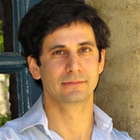When anthropology first became established at English universities, its practitioners kept a fastidious distance from their subjects. The Victorian grandfathers of the discipline, Sir Edward Tyler at Oxford and Sir James Frazer of Cambridge, based their studies on ethnographic materials sent back by missionaries and colonial administrators from faraway lands. To research his massively influential The Golden Bough: A Study in Comparative Religion, which eventually ran to 12 volumes, Frazer never travelled beyond Italy. The pioneering Harvard psychologist William James once asked him if he’d ever actually met a “native”. “Good God, no!” was Frazer’s reply.
In 1910, when the dashing Polish polymath Bronisław Malinowski joined the brand new anthropology department at the LSE, its reading list contained just four books, two of which had the same title (The Races of Man). In 1913, he wrote his own first monograph, The Family Among the Australian Aborigines, entirely on the basis of library research in London.
But things were beginning to change. The following year, Malinowski sailed to the southern hemisphere, to embark on what became known as “fieldwork” – a term borrowed from the natural sciences by his mentor Alfred Haddon, who’d started out as a zoologist, studying molluscs on the Torres Strait Islands, before switching his attention to their human inhabitants.
Malinowski and Haddon were part of a new generation of European and American scholars who, between the 1880s and 1930s, revolutionised their discipline. Instead of sitting in libraries, they began to study “primitive” cultures for themselves, across Africa, Asia and the Americas, living with their subjects for extended periods of time and then reporting back to western readers on what they’d found.
Lucy Moore’s fast-paced book tells the stories of 12 of these men and women. It begins with Franz Boas, who launched his career by living among the Inuit of Baffin Island for a year in the mid-1880s, accompanied by his domestic servant Wilhelm, and ended up as a professor at Columbia, where he inspired several of the other pioneers whom Moore describes, including Margaret Mead, Ruth Benedict and Zora Neale Hurston. It ends in 1955 with Claude Lévi-Strauss’s great meditation on the purpose and limits of anthropology, Tristes Tropiques.
In between, we meet a cast of equally mesmerising academic adventurers. William Rivers pioneered the treatment of shell shock at Craiglockart hospital near Edinburgh, where his patients included Robert Graves, Wilfred Owen, and Siegfried Sassoon. The confirmed bachelor Edvard Westermarck, one of the first scholars to speak sympathetically of “homosexual love”, was also a global authority on the subject of marriage. He once spent the night hidden in a hole under the floor of a Moroccan house in order to gain “an insight into the more intimate family life of the Berber”. Audrey Richards, a brilliant pupil of Malinowski, bicycled across the highlands of what was then Rhodesia to study the impact of colonial rule on the people of the Bemba tribe. She also liked to lighten awkward social situations by lighting matches with her toes.
What linked these loosely connected scholars, the book suggests, was their interest in using the study of exotic cultures to illuminate the peculiarities of the “civilised” world. As Malinowski put it, “in grasping the essential outlook of others, with reverence and real understanding, due even to savages, we cannot help widening our own”. Anthropology thus became a means of showing what humans had in common, rather than what separated them.
One admirer of William Rivers’s intellectual approach was especially impressed by “his lovely gift of coordinating apparently unrelated facts”. The same could be said of Moore. When Malinowski arrived on the Trobriand Islands, she tells us, he brought with him 24 crates of supplies, including “lemonade crystals, tinned oysters and lobster, various kinds of chocolate and cocoa, Spanish olives, cod roes, jugged hare, tinned and dried vegetables, half-hams, French brandy, tea, six different kinds of jam and plenty of condensed milk”. He’d also packed almost 5,000 tablets of medicine. But only one toothbrush.
In Search of Us is packed with such vignettes. It’s a biography, not a work of anthropology. Moore doesn’t sugar-coat her protagonists’ many prejudices, their cavalier treatment of their indigenous subjects, or the problematic history of their discipline. But though she summarises their scholarly views, the main pleasure of her book lies in its celebration of a dozen colourful, unconventional, free-thinking lives.
In Search of Us: Adventures in Anthropology by Lucy Moore is published by Atlantic Books (£17.99). To support the Guardian and Observer, order your copy at guardianbookshop.com. Delivery charges may apply.











